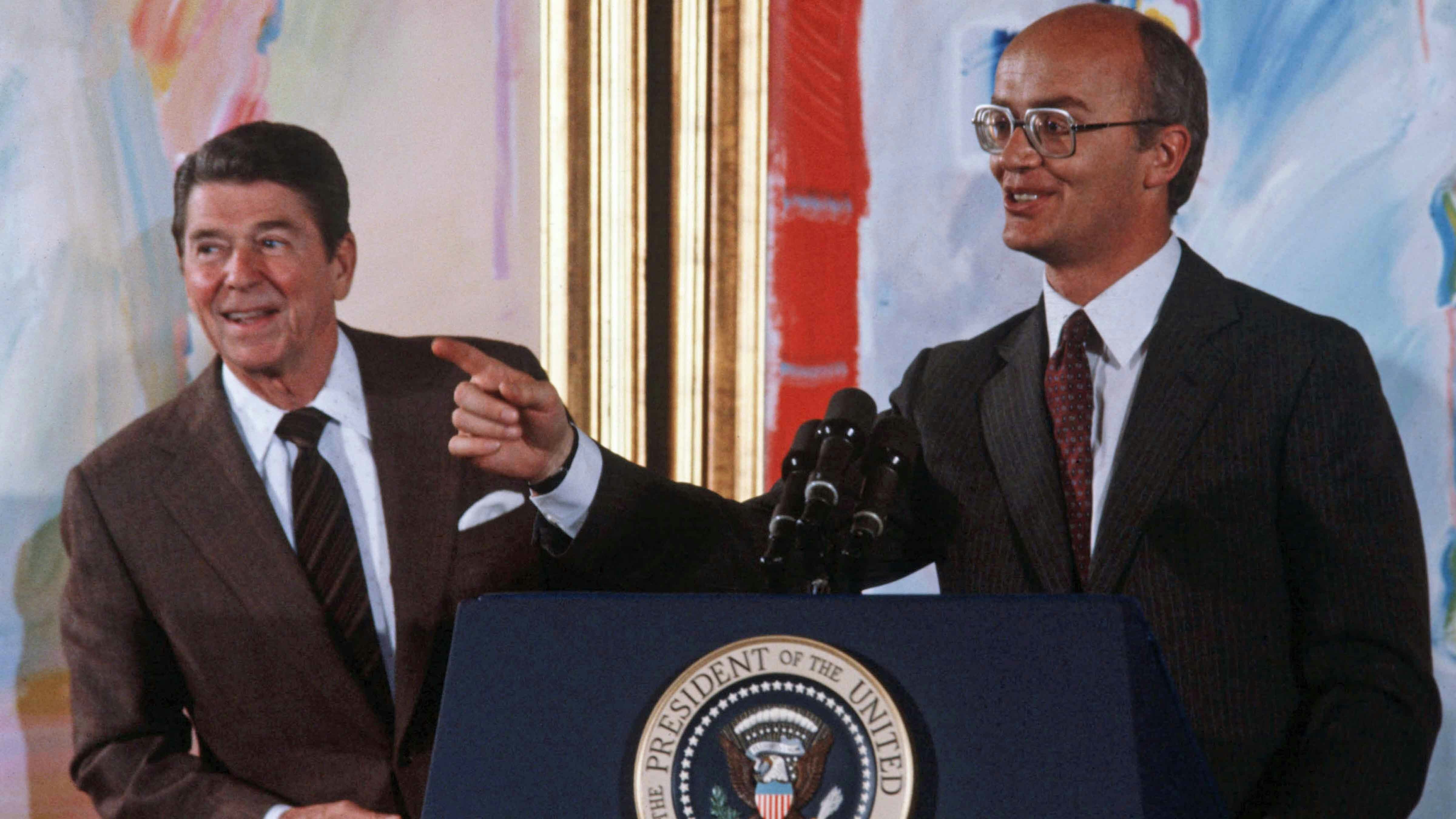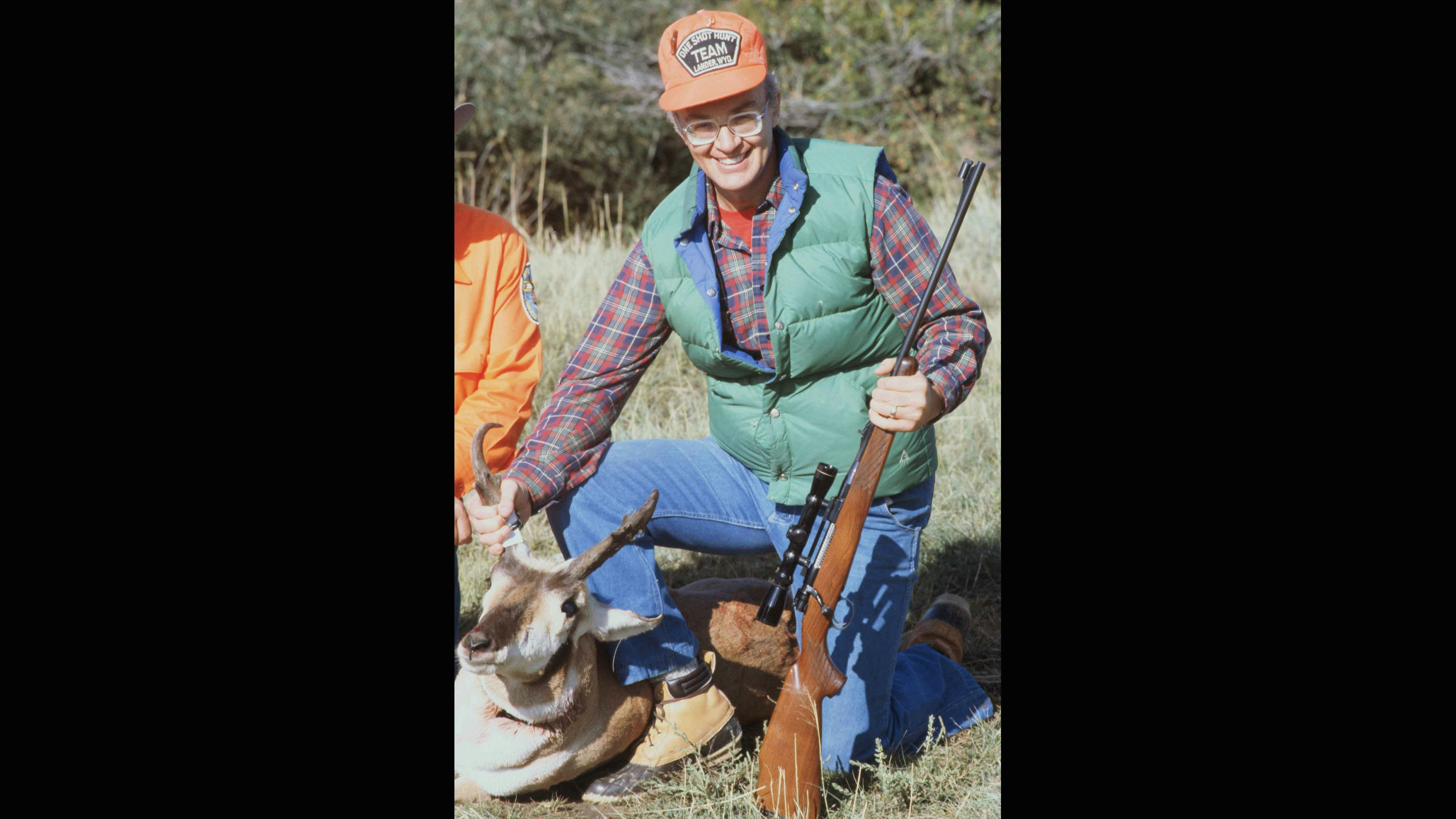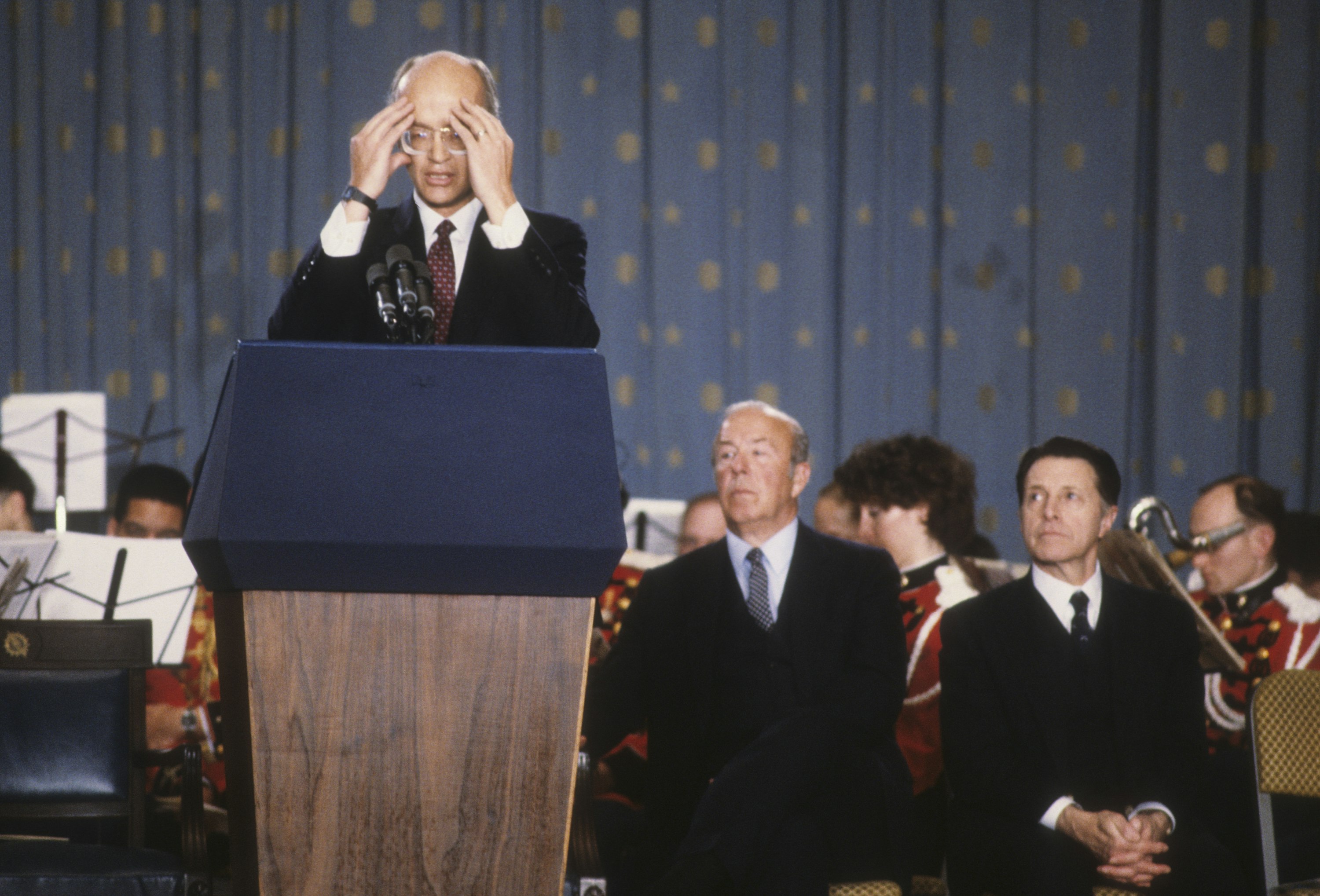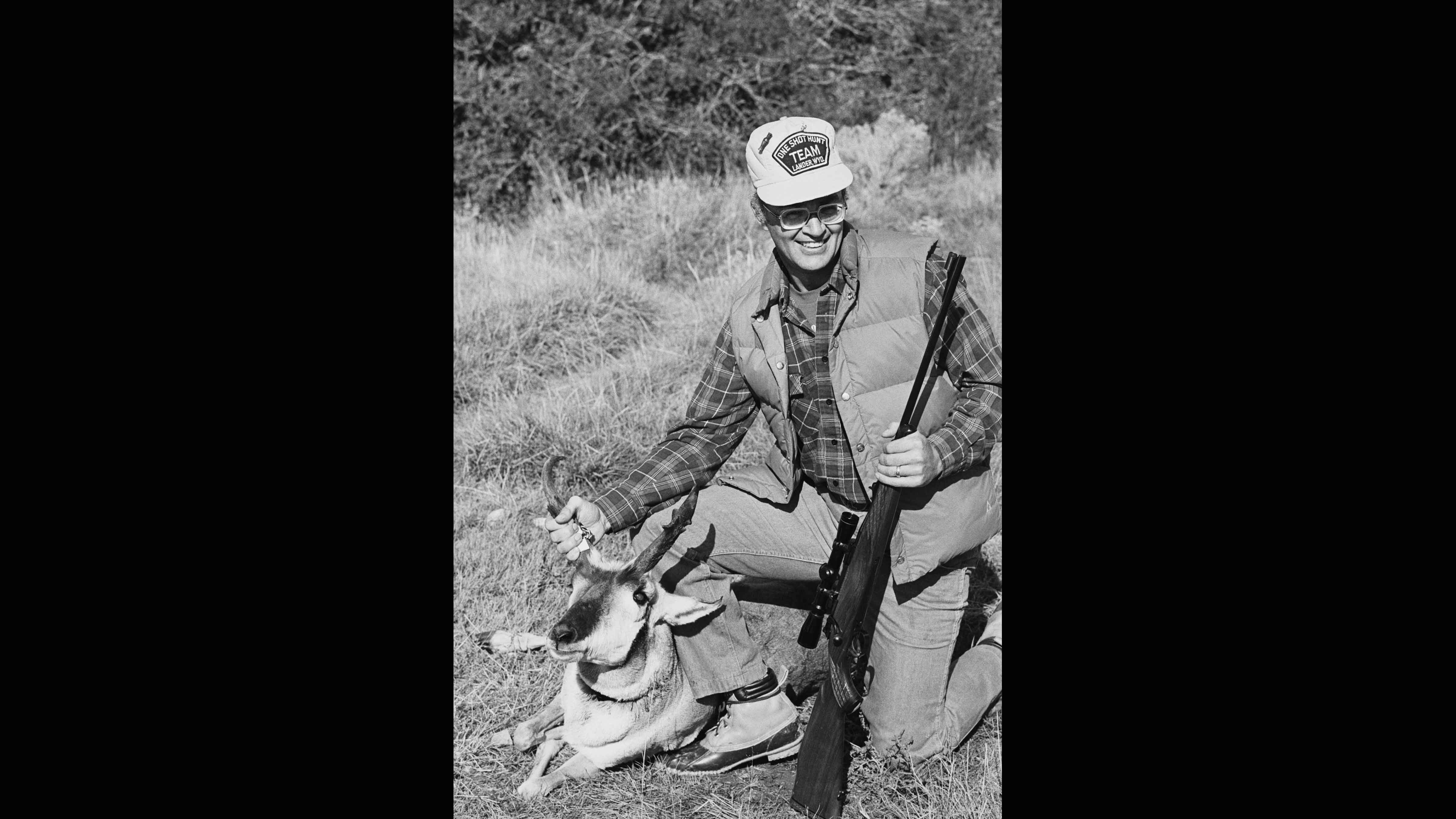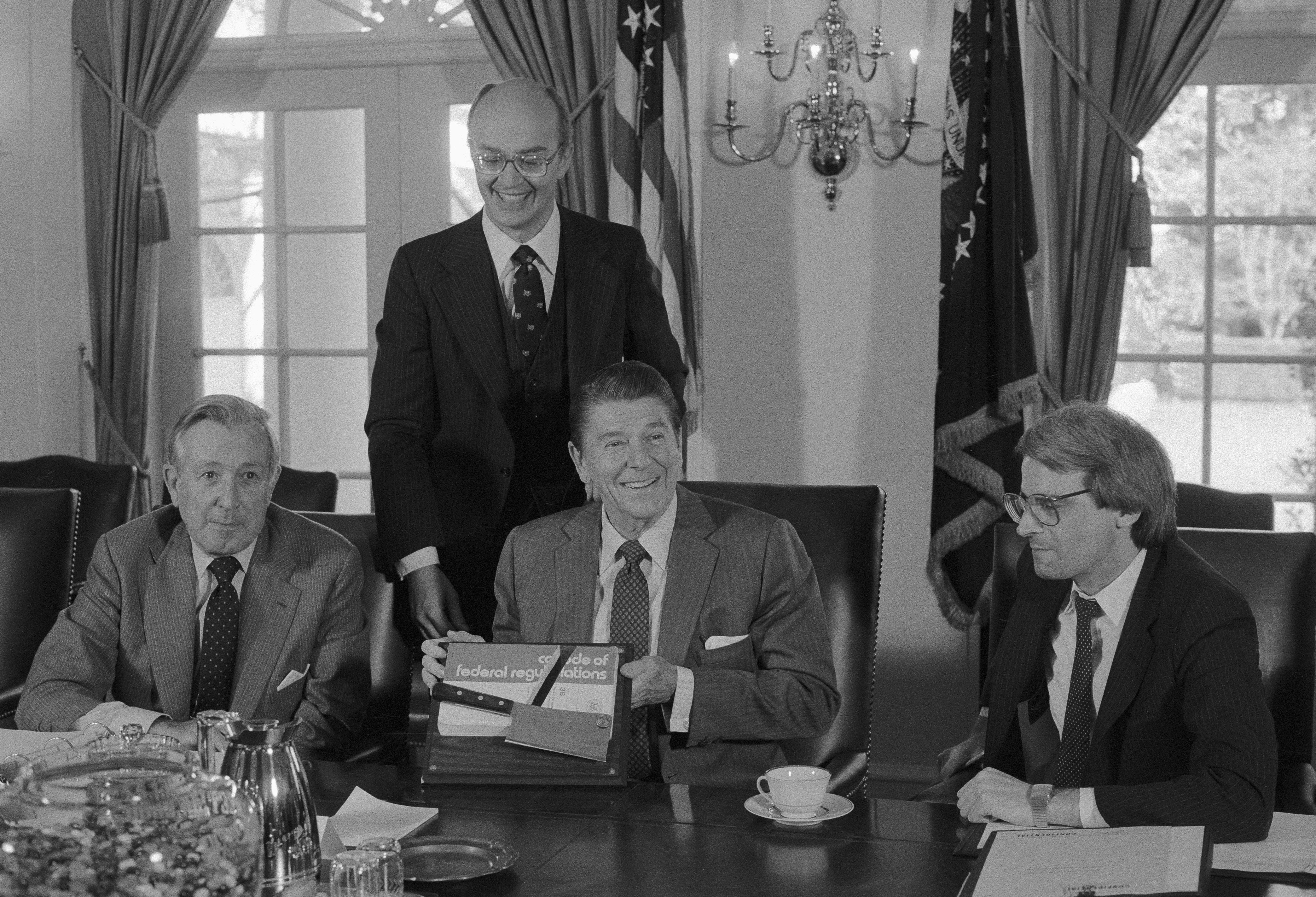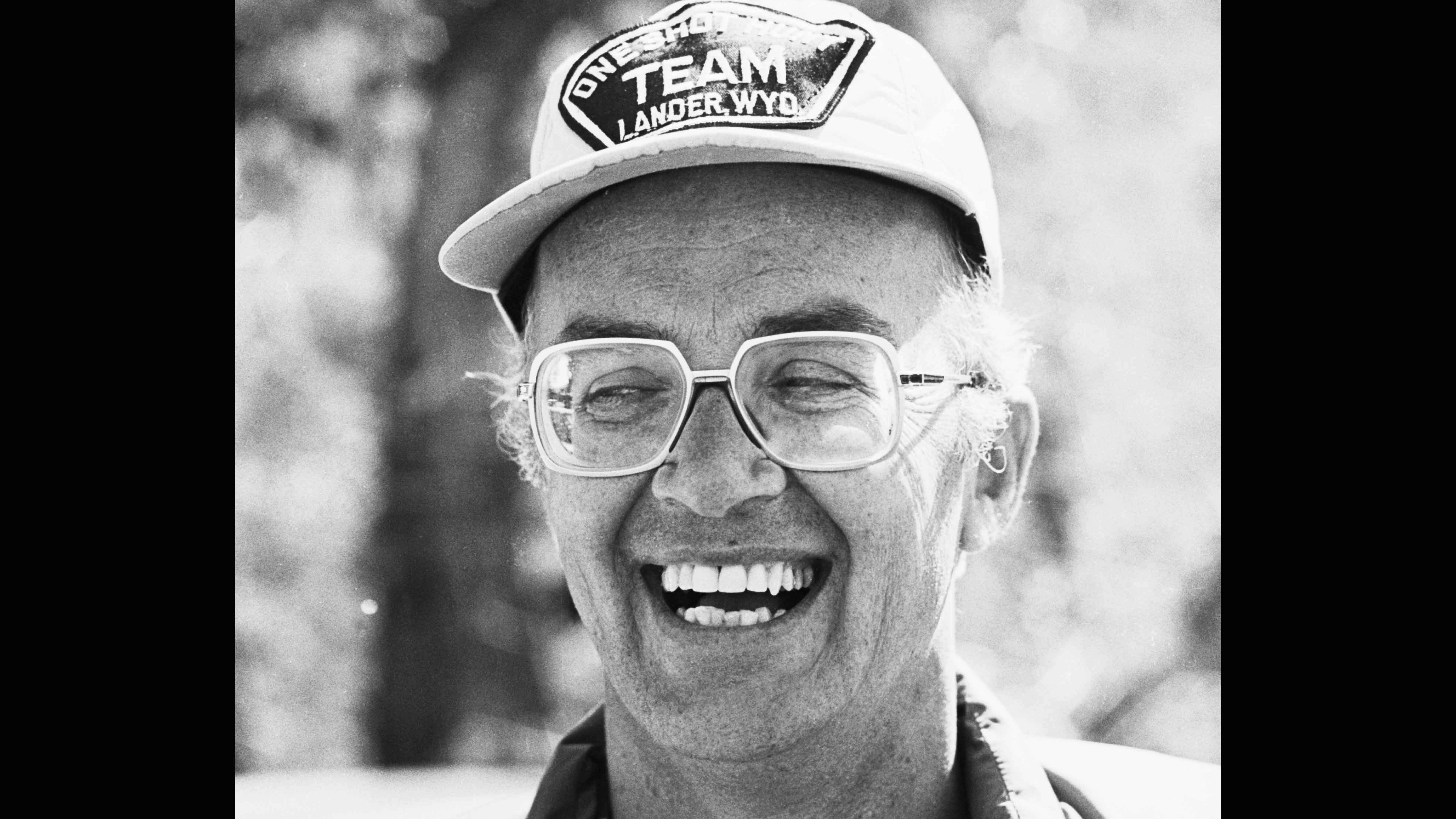Images of Jim Watt being painted like a Native American woman and posing with a dead antelope during the One Shot Antelope Hunt in Lander have outlived the controversial former Secretary of the Interior from Wyoming.
Watt, a Lusk native who always touted his pride in being from Wyoming, recently at the age of 85 at his winter home in Arizona.
Watt At One Shot Hunt
Back then 41 years ago, besides being the publisher of the Lander newspaper, I also was chief photographer for the One Shot Hunt. When Watt was named to a team in 1982, it created a sensation.
Watt had reportedly been a secondary choice to head the Department of the Interior. Former Wyoming Gov. Cliff Hansen was preferred, but declined, which set up Watt as the new guy at the federal agency.
Watt was outspoken with off-color jokes and never afraid to speak his mind. He was a favorite of journalists, but soon talked himself out of the big job and was forced out less than three years into his term.
But on one particular beautiful fall day in Wyoming, I remember at the annual hunt, a huge crowd of media had gathered. Photographers from major media outlets like The Washington Post and People magazine wanted to go out on the hunt with Watt and his hunting party.
I did not want to go with that circus.
Soon, hunt officials came to me and asked if I would go as a pool photographer, meaning I would share my photos with everyone else. Some photos from Getty Images accompany this article may have been taken by me as I had given my photos to all the media that wanted them.
The hunt went well.
Although having been desk-bound as a lawyer for 20 years, Watt was comfortable hunting antelope. He missed his first shot, but nailed his second, which meant he was a loser, according to hunt rules.
The One Shot hunt is based on a Shoshone tradition where you only get one shot (like early Indian hunters with a bow) and it better be true.
Watt later joked that he was able to shoot the second antelope “because the buck turned left, and I knew I had him!”
Watt Called ‘Sly One’
Earlier, Watt had attended a sacred Shoshone ceremony where he had his bullet blessed, and his Indian name was Eejjopo (pronounced Ee-zha-po), meaning "coyote" or "sly one."
At the big banquet Saturday night, all the news media were waiting to watch if Watt would participate in what was then called The Squaw Dance.
This meant you donned a shawl and were painted with make-up and face paint. Watt gamely did that, and those images of him dancing were plastered in news media across the country.
That part of the annual ceremony was ditched some years ago by the One Shot Hunt as demeaning to women of the tribe and replaced by a Round Dance.
Reagan’s Attack Dog
In many ways, Watt was before his time.
He would have loved the highly charged political atmosphere so prevalent in America on social issues today. Back in 1982, Watt was an anomaly. He was sharp-tongued and highly partisan. He advocated selling off federal lands and promised that there would be no more additional parks and national lands under his watch.
Watt’s boss, President Ronald Reagan, changed the direction of the Republican Party and made conservatism a logical approach to all things political and practical in the country.
Reagan had charm and was a favorite of the media despite his right leaning. The appointment of Watt gave him an attack dog who could go after so many policies where Reagan felt the federal government had been intruding into the rights of private citizens for years.
Watt, upon taking office, immediately fired a slew of lawyers who had been hired by the previous President Jimmy Carter administration. Those lawyers had been overzealous in their efforts to have the federal government intrude into many industries, of which energy production was a primary one.
The late secretary was the founding president of the Denver-based Mountain States Legal Foundation (MSLF), a conservative group that reportedly acts on the behalf of oil, timber, development and mineral corporations. Media reports said it was started with money from Joseph Coors of Coors Brewery. The MSLF took donations from some 175 corporations.
Watt Fought Government Overreach
MSLF at the time was reportedly closely identified with an anti-environmental movement called Wise Use. The group promoted so-called "takings" legislation, which asked that private and corporate landholders be compensated by the government for having to comply with environmental laws, such as habitat protection.
Watt initiated aggressive legal tactics at MSLF, filing lawsuits and pursuing pro-business legislation on the environment in a way that hadn't been done before.
An article by Gerald L. Young wrote the following tribute to Watt:
“Jim Watt loved Wyoming and was proud to call himself a native of the Cowboy State. He died this past week in Arizona at the age of 85. James Gaius Watt was born in Lusk and raised in nearby Wheatland, a town one of his critics described as ‘a place frozen in amber decades ago — the 1890s plus electricity and TV.’
“During his tenure as Secretary of the Interior, Watt cut funds for environmental programs, such as those protecting endangered species. He reorganized the department to put less regulatory power on the federal level.
“He favored the elimination of the Land and Water Fund, which increased the land holdings of national forests, national wildlife refuges, and national parks and made matching grants to state governments to do the same.
“Watt also favored opening extensive shorelands and wilderness areas for oil and gas leases, speeding the sale of public lands to private interests and doing so at bargain prices. Watt also loosened regulations on oil and mineral resource extraction companies.
“Watt's stay was marked by heavy and repeated criticisms of his policies, even by fellow Republicans. In April of 1981, the Sierra Club and others began a ‘Dump Watt’ petition drive, and in October of that year presented Congress with 1.1 million signatures supporting his dismissal.
“Even the relatively conservative National Wildlife Federation called for Watt's removal within six months of his taking office, stating that Watt ‘places a much higher priority on development and exploitation than on conservation.’ Watt's actions and derogatory remarks about Senate members earned him enemies, which hampered his ability to carry out his policies.
“He resigned his post on Oct. 9, 1983, after he made remarks about a Senate advisory panel consisting of ‘a black, a woman, two Jews and a cripple.’ Outrage at his bigotry led the Senate to draft a resolution calling for his dismissal, but Watt stepped down before he was forced out.”

